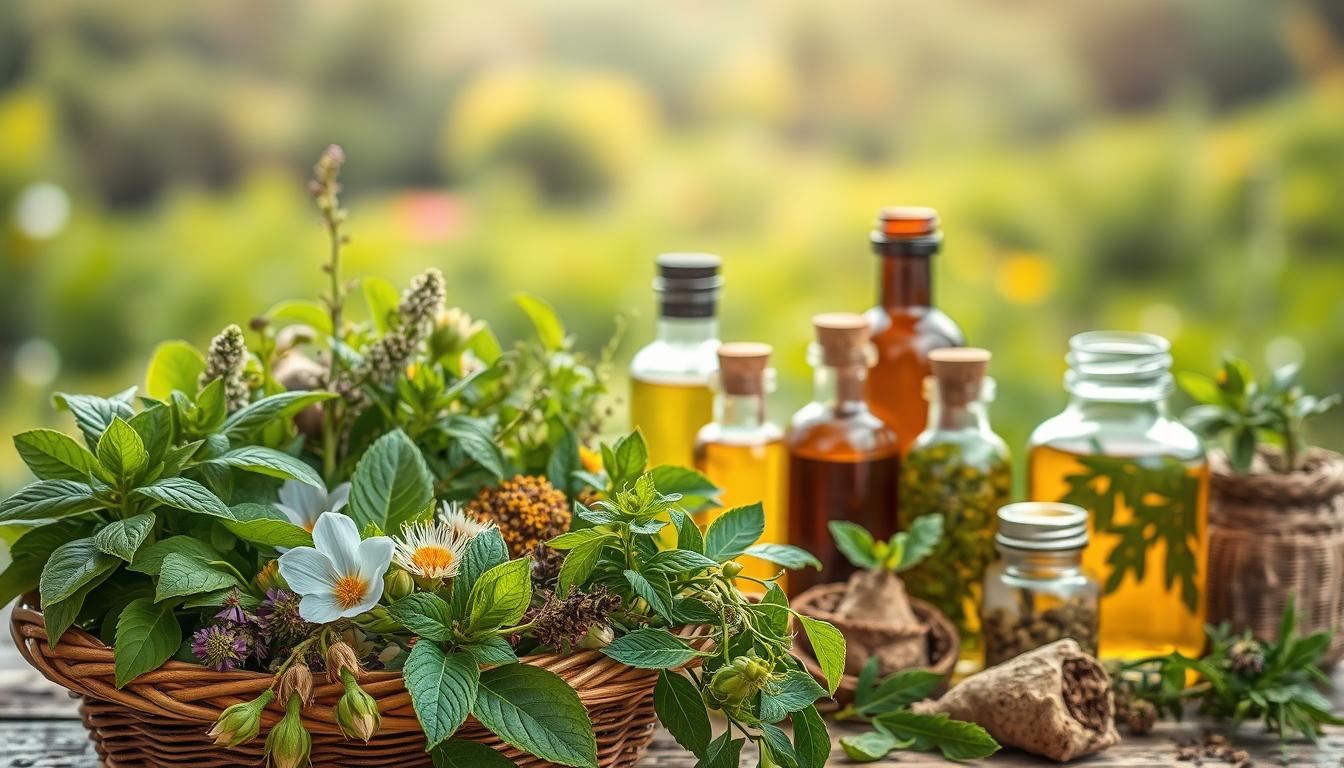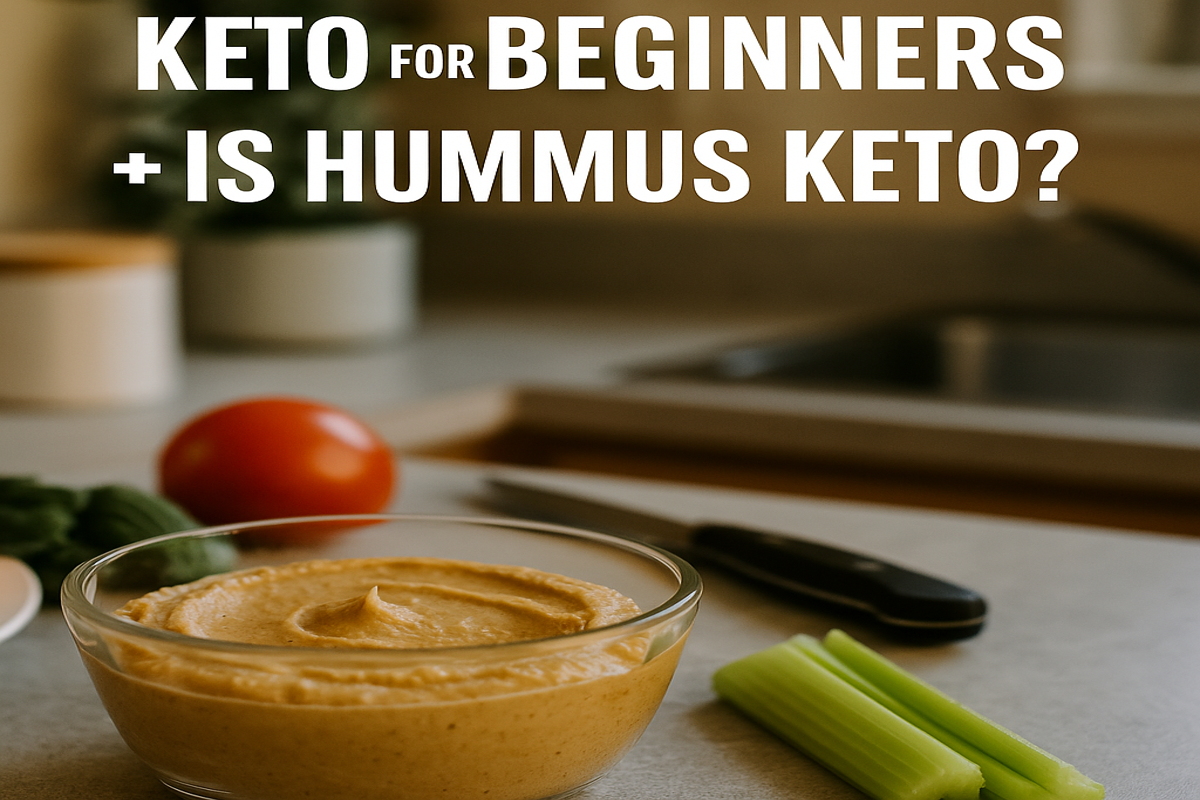Ever think about how our ancestors healed before modern medicine? The answer might be in your garden or spice rack. For thousands of years, healing herbs and spices have been key to wellness.
More than a third of Americans are choosing alternative medicine. And it’s no surprise. Herbal supplements are becoming more popular. They offer a natural way to health, connecting us with nature’s healing.
I started exploring healing herbs & spices out of curiosity. From ancient traditions to modern science, these plants do more than add flavor. They lead us to overall wellness.
Key Takeaways
- Natural remedies have a rich history of healing
- Herbs and spices offer multiple health benefits
- Over one-third of Americans use alternative medicine
- Scientific research supports herbal wellness strategies
- Healing herbs can complement traditional medical treatments
Understanding Healing Herbs & Spices
Herbal medicine is a powerful way to improve our health. It connects us with nature’s healing power. For thousands of years, medicinal plants have helped people stay healthy.
Herbal medicine is rooted in a long tradition. It uses plants to heal us. These natural remedies come in many forms, each with its own health benefits.
What Are Healing Herbs?
Healing herbs are plants with special powers. They help our health in ways regular food doesn’t. They can:
- Reduce stress and anxiety
- Ease inflammation
- Support immune function
- Provide natural pain relief
Benefits of Incorporating Spices
Spices do more than just add flavor. They have health benefits backed by science:
- Ginger: Helps ease nausea and reduces inflammation
- Turmeric: Contains curcumin, which may slow Alzheimer’s progression
- Cinnamon: Potentially helps combat free radicals
- Garlic: May reduce heart disease risk
Nature provides us with incredible healing tools right in our kitchen!
By using herbal medicine and medicinal plants, we can improve our health. These natural remedies help our bodies heal naturally.
The Science of Herbal Medicine
Exploring alternative healing opens a world where nature and science meet. Holistic health is becoming more popular. Scientific studies are showing how effective herbal remedies can be.
Ancient healing methods are now being studied with modern science. About 80% of people worldwide use herbal medicines for health care. This shows how important these natural treatments are globally.
How Herbs Affect the Body
Herbs work with our bodies in complex ways. They contain phytochemicals that can start different reactions in our bodies:
- Reduce inflammation
- Support immune function
- Modulate cellular processes
- Provide antioxidant protection
Evidence Supporting Herbal Remedies
Studies keep showing how well herbal medicine works. For example:
- Chamomile may help with anxiety
- Turmeric has strong anti-inflammatory effects
- Ginger is good for nausea
Modern research confirms what traditional healers have known for centuries: nature provides powerful healing resources.
Herbal supplements have great benefits, but it’s key to talk to health experts. Remember, everyone reacts differently. The FDA doesn’t regulate supplements like it does medicines. So, making smart choices is important for holistic health.
Common Healing Herbs and Their Benefits
Herbal remedies have been around for centuries. They help us stay healthy and treat many health issues. Let’s look at some powerful healing herbs that can boost your health.

Nature gives us amazing herbs for our health. Each one has special properties to help with different health needs.
Ginger: Nature’s Anti-Inflammatory Wonder
Ginger is a top herbal remedy. It’s been used for thousands of years to help with many health problems. Its benefits include:
- Reducing pregnancy-related nausea
- Alleviating post-surgery stomach discomfort
- Potential relief from motion sickness
- Supporting chemotherapy-induced nausea management
Turmeric: A Golden Spice for Health
Turmeric is a bright yellow spice full of health benefits. Its main compound, curcumin, has amazing health perks:
- Reducing brain inflammation linked to Alzheimer’s
- Potentially improving memory in older adults
- Decreasing pain and swelling in arthritis patients
- Supporting anti-cancer properties
Chamomile: Soothing the Mind and Body
Chamomile is a gentle yet strong herb. Its calming effects make it great for natural stress relief. This plant can help:
- Reduce anxiety
- Promote relaxation
- Improve sleep quality
- Support overall mental wellness
While these herbs are very beneficial, always talk to a healthcare professional before trying them.
Popular Spices for Health Enhancement
Healing Herbs & Spices add more than flavor to our meals. They can change how we think about wellness. These tiny, tasty ingredients pack big health benefits. Let’s look at some amazing spices that can improve our health.
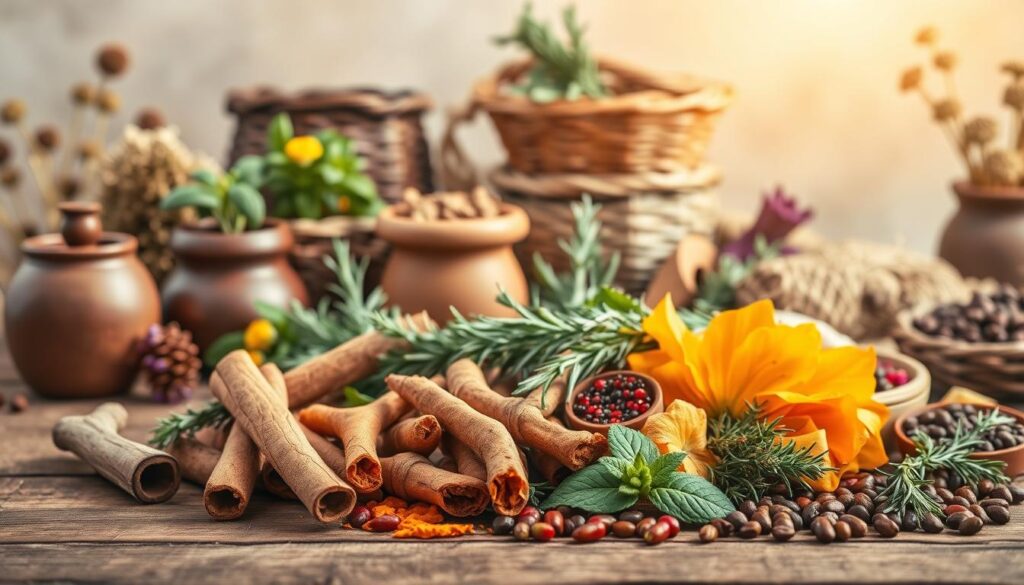
Cinnamon: Sweet Wellness Booster
Cinnamon is more than a tasty baking spice. Research shows it can help control blood sugar levels. Just 2 grams a day (about 3/4 teaspoon) might lower blood pressure and make insulin work better.
- Helps regulate blood glucose
- Potential cardiovascular benefits
- May reduce insulin resistance
Garlic: Nature’s Immune Guardian
Garlic is a top choice for boosting the immune system. Studies show garlic supplements can lower blood pressure and support heart health. Its strong compounds fight inflammation and boost our body’s defenses.
- Reduces systolic blood pressure
- Contains antimicrobial properties
- Supports cardiovascular wellness
Oregano: The Antioxidant Powerhouse
Oregano is more than a pizza topping. It’s packed with compounds like carvacrol and thymol that boost the immune system. Its antioxidants fight bacteria and protect cells.
- Supports immune system
- Rich in antioxidants
- Traditional remedy for digestive issues
Adding these healing herbs and spices to your meals can boost your wellness. Enjoy delicious, nutritious ingredients on your wellness journey.
Herbal Teas and Their Therapeutic Uses
Herbal teas have been a key part of natural wellness for thousands of years. They offer more than just a tasty drink. They provide a natural way to support health through herbal remedies. From calming chamomile to refreshing peppermint, herbal teas can make your well-being better.
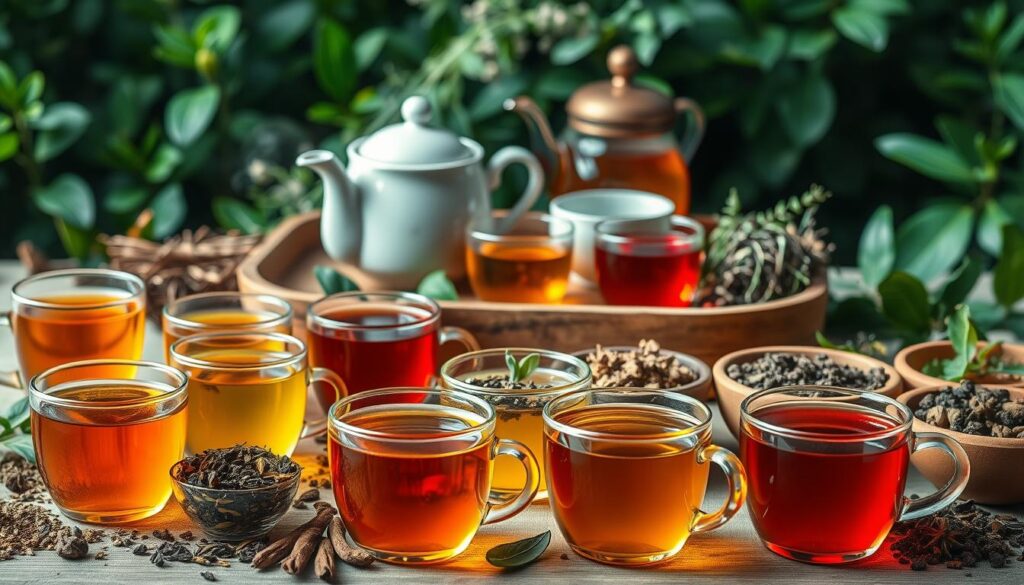
Exploring the Benefits of Herbal Teas
Different herbal teas have unique health benefits. Research shows some amazing properties:
- Chamomile Tea: May improve sleep quality and reduce nighttime wake-ups
- Peppermint Tea: Helps with digestion and relieves IBS symptoms
- Ginger Tea: Reduces nausea and menstrual pain
- Hibiscus Tea: Could lower cholesterol and blood pressure
Popular Herbal Tea Blends for Wellness
Making thoughtful herbal tea blends can boost health benefits. Some great mixes include:
- Immune-Boosting Blend: Echinacea and elderberry
- Relaxation Mix: Chamomile and lavender
- Digestive Support: Peppermint and ginger
- Antioxidant Powerhouse: Hibiscus and rosehip
Herbal teas are naturally calorie-free and full of compounds that support health.
Adding herbal teas to your daily routine can be a simple yet effective way to support your wellness. Whether you’re looking for relaxation, digestive help, or an immunity boost, there’s a herbal tea blend for you.
Creating Your Own Herbal Remedies
Exploring herbal medicine at home is exciting. It’s a journey into natural remedies. You can make safe and effective treatments for common health issues.
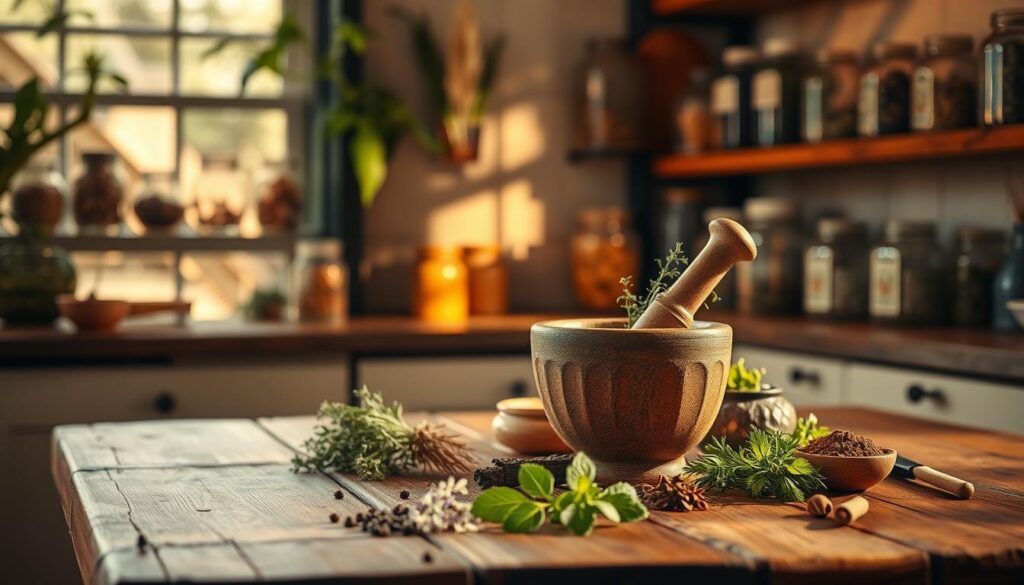
Before starting, it’s key to know some basics. Natural remedies need careful attention and respect for plants’ healing power.
Simple Home Remedy Recipes
Making your own herbal medicine is easy. Here are simple recipes to start with:
- Chamomile Sleep Tincture: Helps reduce stress and promotes relaxation
- Ginger Digestive Tea: Supports healthy digestion and reduces inflammation
- Lavender Calming Salve: Soothes minor skin irritations
Essential Safety Guidelines
When using herbal remedies, safety is top priority. Follow these important tips:
- Always identify herbs correctly before use
- Use high-quality, organic herbs from reputable sources
- Start with small quantities
- Consult healthcare professionals about possible medication interactions
The plant-to-alcohol ratio varies for fresh and dried herbs. For fresh herbs, use a 1:1 ratio, while dried herbs require a 1:4 ratio. Alcohol concentration is usually between 80 to 100 proof, based on the herb’s properties.
Remember, herbal tinctures are not regulated in the United States, so proceed with caution and research.
By following these guidelines, you can safely explore herbal medicine. You can create natural remedies that support your wellness journey.
Spices in Cooking for Better Health
Turning your kitchen into a health haven is simple. Healing herbs & spices do more than add flavor. They are natural medicines that make your meals nutritious.
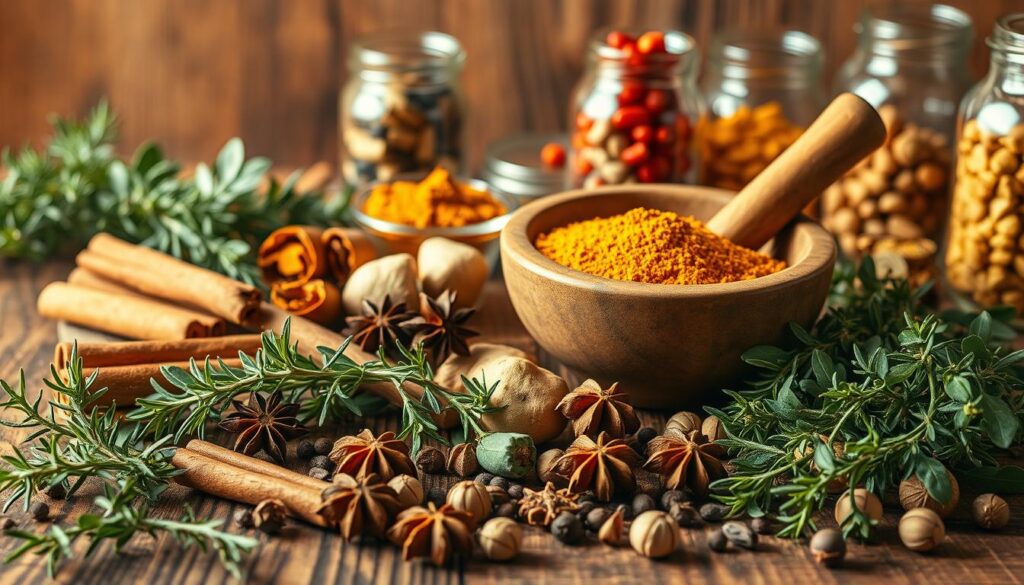
Cooking with herbs and spices is a great way to improve your health. It also makes your meals tasty. Here are some fun ways to add these natural health boosters to your cooking.
Flavorful Ways to Add Healing Spices
Adding healing herbs to your diet is easy and fun. Here are some creative ideas:
- Sprinkle turmeric into scrambled eggs for an anti-inflammatory breakfast
- Add fresh ginger to smoothies for digestive support
- Use cinnamon in morning oatmeal to help regulate blood sugar
- Incorporate garlic into roasted vegetables for immune system protection
Cooking Techniques to Maximize Benefits
How you cook affects the power of healing herbs. Some methods keep nutrients strong, while others might weaken them.
- Use low to medium heat when cooking with spices
- Add dried herbs toward the end of cooking
- Crush whole spices to release maximum flavor and health benefits
- Pair certain spices with healthy fats to improve absorption
Embracing holistic health through mindful cooking can transform your relationship with food and wellness.
By using healing herbs & spices wisely, you can make meals that are good for your body and soul. This turns everyday cooking into a form of self-care.
The Role of Herbs in Traditional Medicine
Traditional medicine has been helping people for thousands of years. At its heart is herbal medicine, which offers deep insights into natural health. These ancient practices are fascinating to modern researchers.
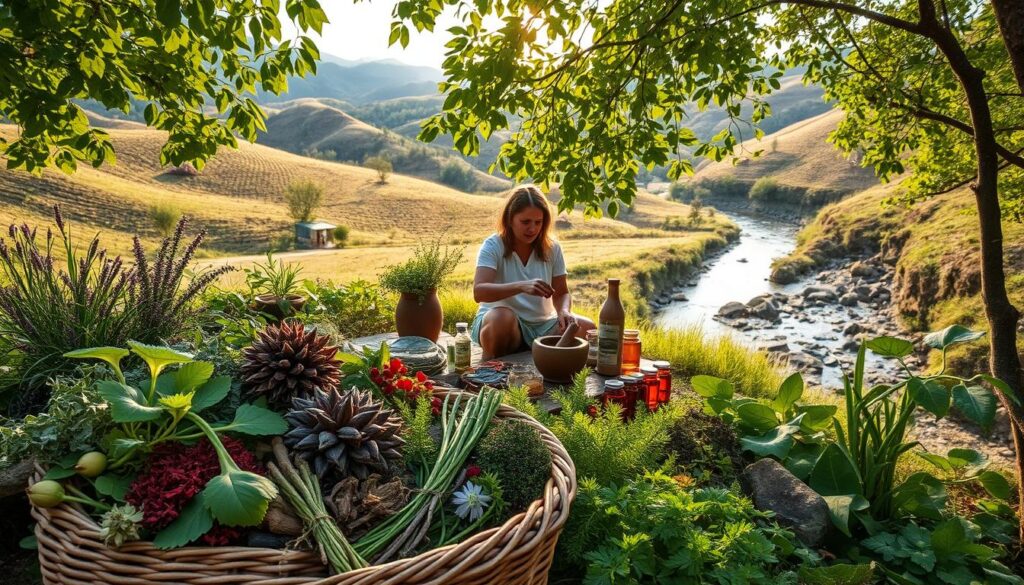
- In Africa, up to 90% of the population relies on traditional medicine
- In India, approximately 70% of people depend on traditional healing methods
- China integrates traditional medicine in over 40% of healthcare delivery
Ayurvedic Practices with Herbs
Ayurvedic medicine comes from India and is over 3,000 years old. It’s a holistic system that uses herbs to balance the body’s energy. Practitioners choose herbs to make treatments that fit each person’s health needs.
“In Ayurveda, herbs are not just medicines, but pathways to holistic wellness.” – Traditional Ayurvedic Wisdom
Chinese Medicine and Herbal Remedies
Traditional Chinese Medicine (TCM) sees herbal medicine as key to healing. It has a long history, using herbal mixes to help the body heal itself. Over 90% of China’s general hospitals now have traditional medicine units.
Herbal medicine is becoming more accepted worldwide. In the United States, about 18.9% of adults have tried herbal therapy. This shows more people are recognizing the value of these ancient healing practices.
Growing Your Own Healing Herbs
Starting a medicinal plants garden is a journey into natural wellness. It’s empowering to grow herbal remedies in your backyard or on a balcony. Growing herbs is rewarding and surprisingly easy.
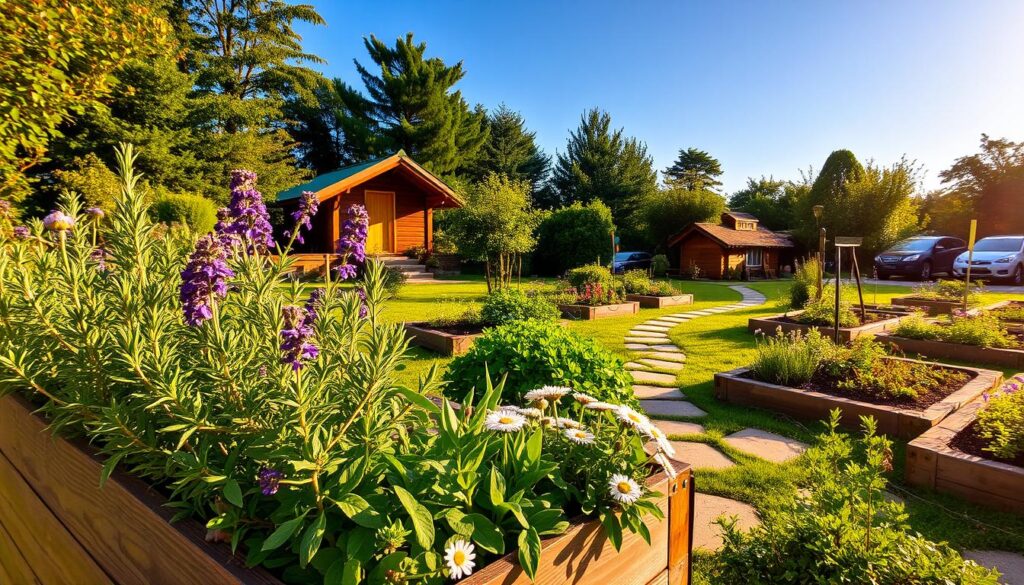
To begin your herb garden, know which plants are best and easiest to grow. Here are some top picks for home cultivation:
- Peppermint – versatile for digestive issues and headache relief
- Echinacea – powerful immune system supporter
- Chamomile – excellent for promoting relaxation
- Holy Basil (Tulsi) – stress-reducing adaptogen
- Sage – supports oral health and overall wellness
Essential Gardening Tips
For successful herb cultivation, follow a few key practices. Choose a sunny spot with well-draining soil. Most herbs love direct sunlight and don’t need much fertilizer.
Water them regularly but don’t overdo it. Overwatering can harm their roots.
Harvesting Your Herbal Remedies
For the best results, harvest herbs in the early morning. Cut stems carefully, leaving enough for the plant to grow. Dry them in a cool, dark place to keep their medicinal value.
Store them in airtight containers to keep them fresh longer.
By growing your own herbs, you can save up to 75% compared to store-bought remedies while ensuring fresh, organic medicinal plants.
Integrating Herbs into Daily Life
Embracing holistic health means finding easy ways to add herbal supplements to your daily routine. I’ve found that making herbs a part of your life is simple and doesn’t take much time.
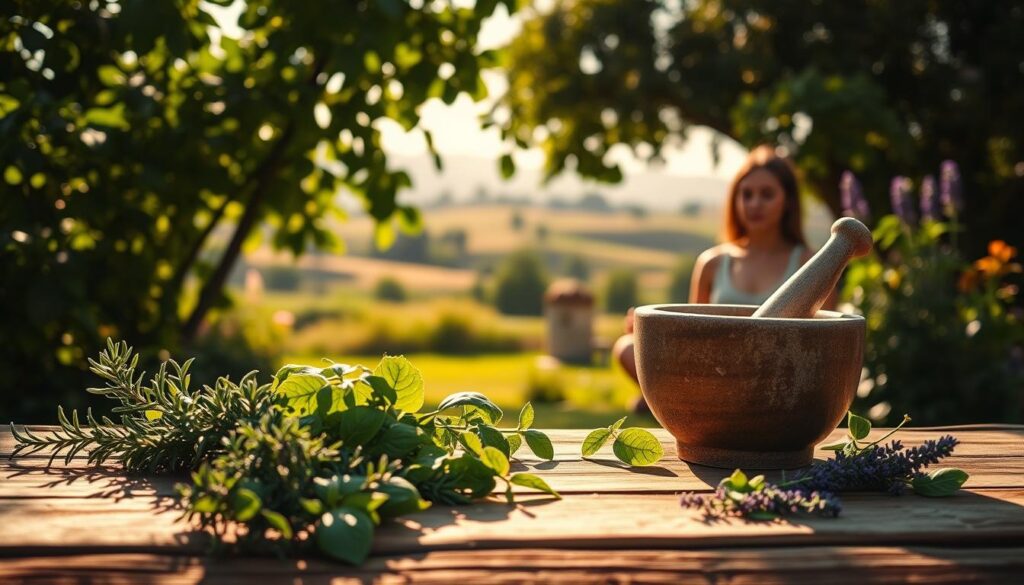
Choosing the right herbs for your health needs is important. Start by picking herbs that match your wellness goals:
- Stress management: Try chamomile or ashwagandha for calm
- Immune support: Look into echinacea and elderberry
- Digestive health: Ginger and peppermint are great choices
Practical Herb Integration Strategies
Starting a herbal routine doesn’t mean changing your whole life. Here are some easy steps to begin:
- Start your day with a herbal tea
- Use fresh herbs in your cooking
- Keep herbal supplements where you can see them
- Keep track of your progress in a wellness journal
Making Herbs a Daily Habit
Using herbal supplements regularly is key for holistic health. Create reminders and find fun ways to add herbs to your day. Use them in teas, supplements, or cooking to make herbal wellness easy and natural.
Remember, your herbal journey is personal. Listen to your body and adjust as needed.
Cultivating a Mindful Approach to Wellness
My journey into alternative healing has shown me that wellness is more than treating symptoms. It’s about understanding the deep connection between mind, body, and nature. Holistic health is not just a trend; it’s a deep way to approach our well-being.
By embracing herbs and mindful practices, we can create a harmonious relationship with our health. This goes beyond traditional medical approaches.
Mindfulness practices have shown great promise in reducing stress and improving sleep. I’ve found that adding natural supplements and herbal remedies to my daily routine boosts my emotional and physical resilience. Studies show that our mental state affects our physical health, making alternative healing key in modern wellness.
Embracing a holistic lifestyle means listening to your body and understanding its unique needs. Activities like journaling, practicing gratitude, and using herbal remedies can change how you view health. It’s about creating a wellness plan that cares for your physical, mental, and spiritual self.
Start small by adding mindful practices and herbal remedies to your routine. Notice how your body responds. The journey to true wellness is personal, and each step brings you closer to a balanced, vibrant life. Remember, alternative healing empowers you to take control of your health journey.
Source Links
- https://www.dgepress.com/natgeo/pressrelease/natural-solutions-for-a-new-you/ – Natural Solutions For A New You
- https://spavelous.com/herbs-and-spices-path-to-wellness-and-vitality/ – Herbs And Spices: Your Yummy Path To Wellness And Vitality | Spavelous
- https://www.webmd.com/healthy-aging/features/spices-and-herbs-health-benefits – Spices and Herbs That Can Help You Stay Healthy
- https://www.cottercrunch.com/healing-herbs-and-spices-list/ – Healing Herbs and Spices List + Guide
- https://www.mountsinai.org/health-library/treatment/herbal-medicine – Herbal medicine Information | Mount Sinai
- https://www.verywellhealth.com/healing-herbs-5180997 – 10 Healing Herbs with Medicine Benefits
- https://www.hopkinsmedicine.org/health/wellness-and-prevention/5-spices-with-healthy-benefits – 5 Spices with Healthy Benefits
- https://www.nationwidechildrens.org/family-resources-education/family-resources-library/a-guide-to-common-medicinal-herbs – A Guide to Common Medicinal Herbs
- https://www.eatingwell.com/article/32764/eight-of-the-worlds-healthiest-spices-herbs-you-should-be-eating/ – 14 of the World’s Healthiest Spices & Herbs You Should Be Eating
- https://www.health.com/herbs-and-spices-for-better-health-7480182 – Do You Know These 15 Common Herbs and Spices?
- https://www.healthline.com/nutrition/10-herbal-teas – 10 Healthy Herbal Teas You Should Try
- https://pmc.ncbi.nlm.nih.gov/articles/PMC8308238/ – Role of Herbal Teas in Regulating Cellular Homeostasis and Autophagy and Their Implications in Regulating Overall Health
- https://pmc.ncbi.nlm.nih.gov/articles/PMC6174262/ – Herbal beverages: Bioactive compounds and their role in disease risk reduction – A review
- https://www.healthline.com/health/herbal-remedies-from-your-garden – 9 Simple Herbal Remedies from Your Garden
- https://www.learningherbs.com/herbal-kit – Herbal Remedy Kit: Make Your Own Remedies
- https://www.medicalnewstoday.com/articles/324149 – Herbal tinctures: 5 types and recipes
- https://www.healthline.com/nutrition/10-healthy-herbs-and-spices – 10 Delicious Herbs and Spices With Powerful Health Benefits
- https://www.medicalnewstoday.com/articles/healthy-herbs-and-spices – 10 healthy herbs and spices: Anti-inflammatory, nutritious, and more
- https://pubmed.ncbi.nlm.nih.gov/17022438/ – Health benefits of herbs and spices: the past, the present, the future – PubMed
- https://www.ncbi.nlm.nih.gov/books/NBK92773/ – Herbal Medicine – Herbal Medicine
- https://sowrightseeds.com/blogs/planters-library/create-a-healing-medicinal-herb-garden?srsltid=AfmBOooa-dz-d5s8IyM-py6ifNRapk6jPtuaWDdZo6Vo0ICY41ks8ReK – Grow Your Own Healing Garden With These 10 Medicinal Herbs
- https://homesteadingfamily.com/15-medicinal-herbs-to-grow/ – 15 Medicinal Herbs to Grow & Their Common Uses
- https://www.wishgardenherbs.com/blogs/wishgarden/incorporating-herbs-into-your-daily-life – Incorporating Herbs Into Your Daily Life
- https://spicewell.com/blogs/press/how-to-incorporate-ayurvedic-herbs-into-your-daily-routine?srsltid=AfmBOorfvWqrHW7bb9euFSPciPw-7wBKOrrK03F6An90IXwv5uwlU78o – How to Incorporate Ayurvedic Herbs into Your Daily Routine?
- https://fastercapital.com/topics/holistic-approaches-to-wellness.html – Holistic Approaches To Wellness – FasterCapital
- https://www.balanceintohealth.com/blog/nutrition-and-wellness-a-natural-medicine-perspective – Nutrition and Wellness: A Natural Medicine Perspective — Balance Into Health
